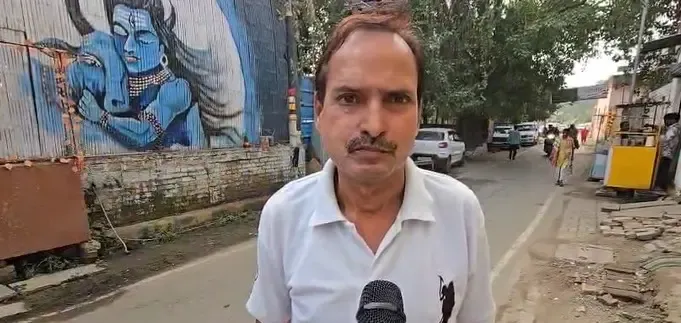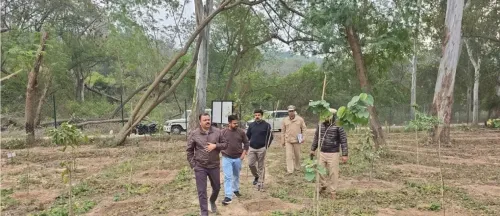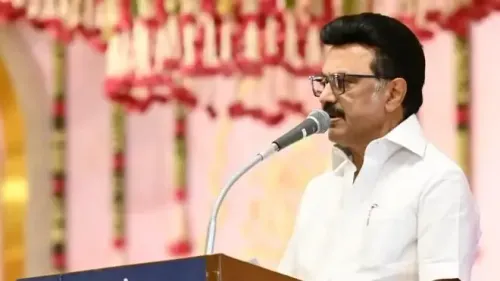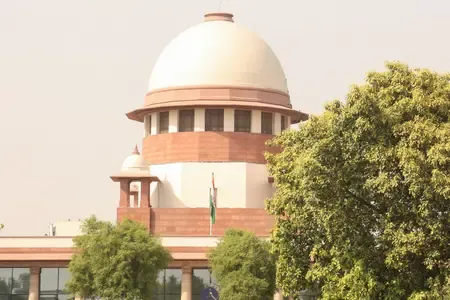Will the Varanasi District Court Decide on the Replacement of Sealing Cloth at the Gyanvapi Site?

Synopsis
Key Takeaways
- Varanasi district court is set to rule on the sealing cloth at Gyanvapi.
- Discovery of a Shivling during an ASI survey raises contentious issues.
- Sealing cloth is essential for maintaining site security.
- Gyanvapi dispute has profound religious and cultural implications.
- Hearing could influence the interpretation of the Places of Worship Act.
Varanasi, Oct 24 (NationPress) The Varanasi district court is poised to make a significant ruling on Friday regarding the Gyanvapi site, where a Shivling was allegedly discovered during an Archaeological Survey of India (ASI) investigation. This hearing will assess whether the worn sealing cloth that covers the contentious area should be substituted.
The disputed zone was sealed following the Shivling's discovery during the court-mandated survey. Earlier, the court had ordered that the fish located in the sealed area be moved to the wazukhana (ablution pond). However, with the sealing cloth now entirely compromised, the court is expected to rule on the necessity of resealing the region with a new cloth to ensure security and mitigate further disputes.
Advocate Subhash Nandan Chaturvedi, representing the Hindu side, shared with IANS, "The Gyanvapi matter is trial number 18/22, wherein an ASI survey was conducted under the directive of the district and civil court. During this survey, a Shivling was discovered inside the area known as the wazukhana. Given the sensitivity of this issue, which has escalated from the district courts to the Supreme Court, the area was sealed and placed under paramilitary protection."
He further stated, "The sealing cloth has now deteriorated over time. We have requested the district court to replace it to prevent any allegations or counterclaims. Today, the court is anticipated to decide on the potential change of the cloth."
The Gyanvapi dispute has persisted for numerous years. On September 12, 2022, the Varanasi District Court dismissed objections against a petition by five Hindu women who sought permission to offer daily prayers to Hindu deities within the mosque's disputed premises.
This order enabled the continuation of hearings that challenge the religious identity of the site, effectively reigniting discussions surrounding the Places of Worship (Special Provisions) Act, 1991 — a law designed to uphold the religious character of worship sites as they existed on August 15, 1947.
The origins of this case date back to August 2021, when five Hindu women submitted a plea to the Varanasi Civil Court asking for permission to worship idols allegedly located within the Gyanvapi Mosque. Following this petition, an Enquiry Commission executed a video survey of the mosque, during which Hindu petitioners asserted that a Shivling was located inside the wazukhana, a pond used by Muslims for ablution prior to prayers.










